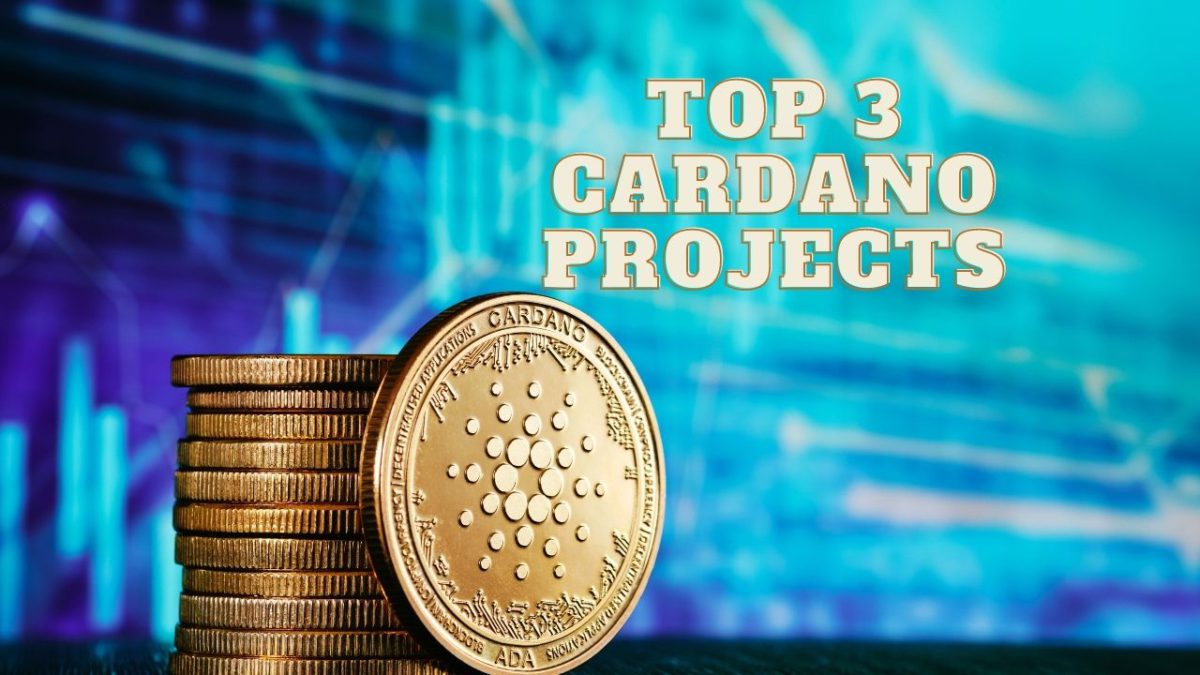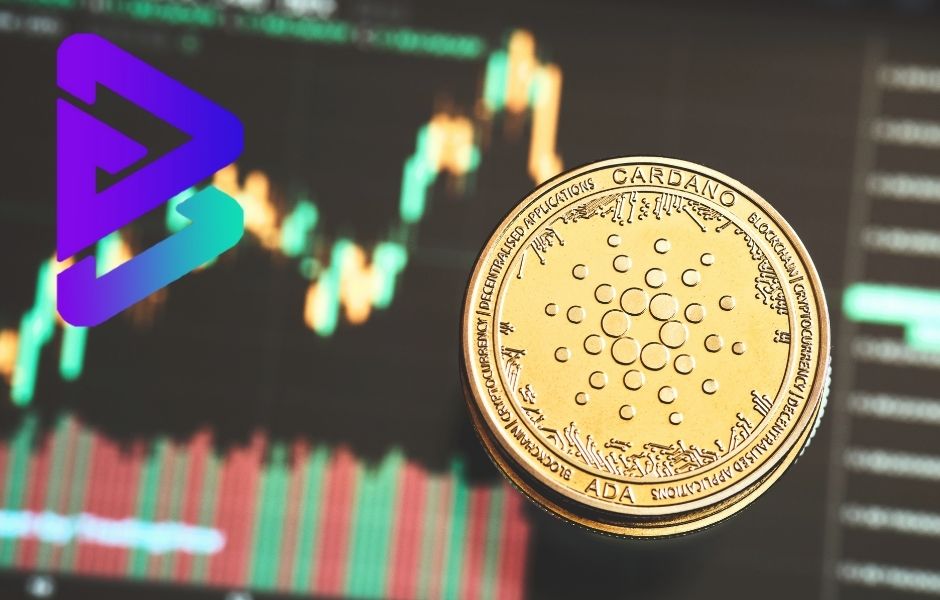Top 5 DeFi Projects To Watch Out For In 2023
DeFi, or Decentralized Finance, refers to a category of blockchain-based projects and applications that aim to provide traditional financial services and products in a decentralized and open manner. DeFi projects typically leverage smart contracts on blockchain platforms like Ethereum to create and execute financial protocols without the need for intermediaries, such as banks or traditional financial institutions.
DeFi projects cover a wide range of financial services, including lending and borrowing, decentralized exchanges (DEXs), stablecoins, yield farming, insurance, asset management, and more. These projects enable individuals to access financial services directly, without relying on centralized authorities, and often offer greater transparency, accessibility, and potentially higher returns compared to traditional financial systems.
Here are some of the top DeFi projects to watch out for in 2023:
-
- MakerDAO is a decentralized stablecoin protocol that issues the DAI stablecoin. DAI is pegged to the US dollar, and it can be used to collateralize loans in DeFi protocols.
What is DeFi?
DeFi, or decentralized finance, is a financial system that is built on top of blockchain technology. DeFi applications allow users to access financial services without the need for a central authority, such as a bank or a financial institution.
DeFi is still in its early stages, but it has the potential to revolutionize the financial industry. DeFi applications offer a number of advantages over traditional financial services, including:
- Security: DeFi applications are secured by blockchain technology, which is one of the most secure and tamper-proof technologies available.
- Transparency: DeFi applications are transparent and open source, which means that anyone can audit the code and verify that the application is working as intended.
- Efficiency: DeFi applications are more efficient than traditional financial services, as they do not require the use of middlemen.
💢🔎Exploring Defi projects on #zkSyncEra after 2 months mainnet launch💢
🧵👇Details of each project👇🧵#zkSync #zkSyncEcosystem #Sobajaswap #DeFi #zkSummer pic.twitter.com/msS8sGwFOc
— Sobajaswap | zkSync Era (@Sobajaswap) May 24, 2023
Key characteristics of DeFi projects include:
- Decentralization: DeFi projects aim to eliminate the need for intermediaries by leveraging blockchain technology. The rules and protocols are typically governed by smart contracts, which execute automatically without human intervention.
- Openness: DeFi projects are generally open-source, allowing anyone to inspect the code, contribute to the development, or build on top of existing protocols. This fosters innovation and collaboration within the ecosystem.
- Interoperability: Many DeFi projects are built on the Ethereum blockchain, which enables interoperability between different applications. Users can often interact with multiple DeFi projects seamlessly using a single wallet.
- Permissionless: DeFi projects typically do not require users to obtain permission or meet certain criteria to participate. Anyone with an internet connection and a compatible wallet can access and use DeFi applications.
- Trustlessness: DeFi projects aim to minimize the need for trust between parties by relying on smart contracts and cryptographic protocols. The rules and outcomes are predetermined and enforced by the underlying technology, reducing the reliance on centralized entities.
It’s important to note that while DeFi projects offer exciting opportunities, they also come with risks. Users should exercise caution, conduct thorough research, and understand the potential risks associated with each project before participating, as the DeFi space is still evolving and can be subject to volatility, security vulnerabilities, and regulatory uncertainties.
Also, read – How Is DeFi Changing The Lending Routes Of Blockchain World
Benefits of DeFi
Decentralized Finance (DeFi) offers numerous benefits that have garnered significant attention and adoption in recent years. DeFi refers to a range of financial applications and services built on blockchain networks, primarily utilizing smart contracts. Here are some of the key benefits of DeFi:
- Accessibility: DeFi eliminates the need for intermediaries such as banks or financial institutions, providing financial services directly to individuals across the globe. Anyone with an internet connection can participate, regardless of their location or socioeconomic status. This accessibility promotes financial inclusion by enabling individuals who may not have had access to traditional financial services to engage in various financial activities.
- Transparency: DeFi operates on blockchain technology, which ensures transparency and immutability of transactions. All transactions and smart contract interactions are recorded on a public ledger, accessible to anyone. This transparency helps build trust among participants, as they can verify and audit transactions and contracts independently, reducing the potential for fraud or manipulation.
- Security: DeFi platforms utilize strong encryption and decentralized consensus mechanisms, making them highly secure. Funds are held in non-custodial wallets, reducing the risk of hacking or theft associated with centralized exchanges or custodians. Additionally, smart contracts automatically execute transactions based on predefined rules, eliminating the need for intermediaries, reducing counterparty risk, and making the system more resilient.
Risks of DeFi
While decentralized finance (DeFi) presents numerous benefits, it is important to be aware of the potential risks associated with this emerging technology. Here are some of the key risks of DeFi:
- Smart Contract Vulnerabilities: Smart contracts, which are the building blocks of DeFi applications, are executed autonomously and are immutable once deployed on the blockchain. If there are vulnerabilities or flaws in the smart contract’s code, they can be exploited by malicious actors. These vulnerabilities can lead to funds being lost or stolen. While auditing and testing practices are improving, there is still a risk of undiscovered vulnerabilities in smart contracts.
- Regulatory Uncertainty: The regulatory landscape surrounding DeFi is still evolving. Various jurisdictions have different approaches and regulations towards cryptocurrencies, blockchain technology, and financial services. Lack of clarity in regulations can create uncertainty and potentially result in legal and compliance risks for both users and DeFi projects. Changes in regulations could impact the availability and functionality of certain DeFi applications, and users may face unforeseen restrictions or legal consequences.
- Market Volatility: DeFi platforms often involve the trading, lending, and borrowing of cryptocurrencies and other digital assets. These markets are known for their volatility, and sudden price fluctuations can lead to significant financial losses. Users must carefully assess and manage their risk exposure, as excessive leverage or poor risk management strategies can amplify losses.
- Counterparty Risk: While DeFi eliminates the need for traditional intermediaries, it introduces a new form of counterparty risk. When participating in DeFi protocols, users often interact with anonymous or pseudonymous counterparties. The trustworthiness and reliability of these counterparties can be difficult to assess, and there is a risk of scams, rug pulls, or malicious activities that could result in the loss of funds.
- User Error and Phishing Attacks: DeFi platforms require users to manage their private keys and interact with various decentralized applications (dApps). Mistakes such as entering incorrect addresses or losing private keys can lead to irreversible loss of funds. Additionally, phishing attacks, where malicious actors impersonate legitimate platforms or services, can trick users into revealing their private keys or providing access to their wallets, resulting in theft of funds.
Conclusion
DeFi is a rapidly growing space with a lot of potential. In 2023, we can expect to see even more growth and adoption of DeFi, as more people become aware of the benefits of this technology. However, it is important to be aware of the risks involved before using DeFi applications.
Stay informed with daily updates from Blockchain Magazine on Google News. Click here to follow us and mark as favorite: [Blockchain Magazine on Google News].
Get Blockchain Insights In Inbox
Stay ahead of the curve with expert analysis and market updates.
latest from tech
Disclaimer: Any post shared by a third-party agency are sponsored and Blockchain Magazine has no views on any such posts. The views and opinions expressed in this post are those of the clients and do not necessarily reflect the official policy or position of Blockchain Magazine. The information provided in this post is for informational purposes only and should not be considered as financial, investment, or professional advice. Blockchain Magazine does not endorse or promote any specific products, services, or companies mentioned in this posts. Readers are encouraged to conduct their own research and consult with a qualified professional before making any financial decisions. The featured image used is just a creative depiction of the title and it does not intend to hurt sentiments of any person or institution. If it hurts anyone sentiments, please do not hesitate to reach out to Blockchain Magazine.

 Bitcoin
Bitcoin  Ethereum
Ethereum  XRP
XRP  Tether
Tether  Solana
Solana  USDC
USDC  Dogecoin
Dogecoin  Cardano
Cardano  Lido Staked Ether
Lido Staked Ether  TRON
TRON  Wrapped Bitcoin
Wrapped Bitcoin  Chainlink
Chainlink  Wrapped stETH
Wrapped stETH  Sui
Sui  Avalanche
Avalanche  Stellar
Stellar  Hedera
Hedera  Toncoin
Toncoin  Shiba Inu
Shiba Inu  Hyperliquid
Hyperliquid  LEO Token
LEO Token  Litecoin
Litecoin  Bitget Token
Bitget Token  WETH
WETH  USDS
USDS  Polkadot
Polkadot  Bitcoin Cash
Bitcoin Cash  Ethena USDe
Ethena USDe  Wrapped eETH
Wrapped eETH  Uniswap
Uniswap  MANTRA
MANTRA  Ondo
Ondo  Pepe
Pepe  Monero
Monero  Aave
Aave  Official Trump
Official Trump  NEAR Protocol
NEAR Protocol  WhiteBIT Coin
WhiteBIT Coin  Mantle
Mantle  Aptos
Aptos  Dai
Dai  Internet Computer
Internet Computer  Ethereum Classic
Ethereum Classic  Bittensor
Bittensor  Cronos
Cronos  OKB
OKB  POL (ex-MATIC)
POL (ex-MATIC)  Gate
Gate 




